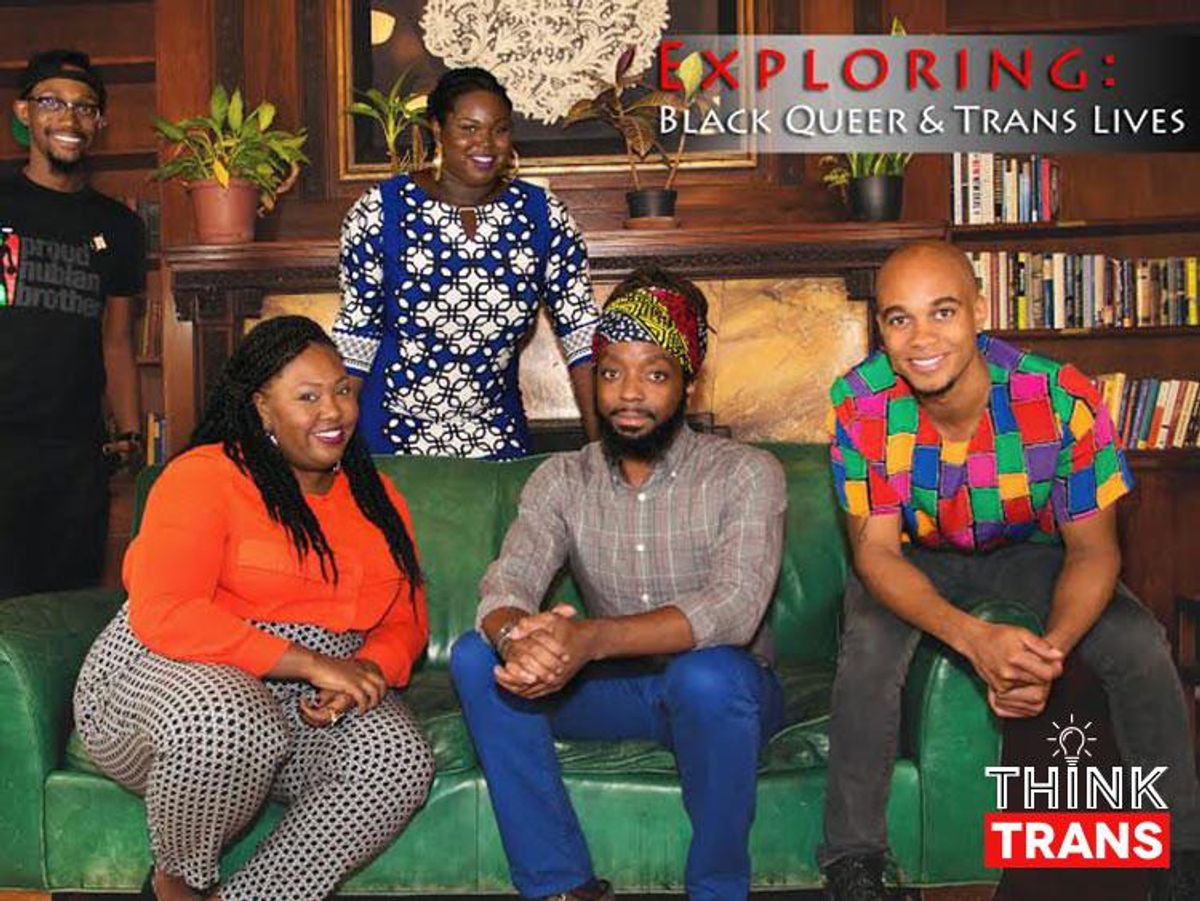At the same time that the conservative backlash against the Black Lives Matter movement unfolds, new voices within BLM are attempting to rebut critics by showing that BLM is a thoughtful, peaceful protest movement that empowers transgender people, women, and all marginalized Americans.
Fox News Channel commentator Bill O'Reily campaigned throughout the summer against the movement, charging it with "Gestapo tactics," as he alleged in a July 29 broadcast, and insisting that BLM is antipolice. O'Reilly was joined in his attacks by Republican presidential candidates like Wisconsin Gov. Scott Walker, who allege that BLM enables crime, as Jamelle Bouie observed in Slate magazine.
But on August 29, a black queer arts and activism collective called the Each-Other Project hosted a panel discussion at the Brooklyn Ethical Society Center to discuss strategies to better highlight the experiences of transgender people and women within BLM. The panel is part of a developing documentary video project. Two black gay partners, Donja R. Love, a playwright and screenwriter, and Brandon Nick, a filmmaker, head the Each-Other Project
Reached by phone on September 1, Love and Nick described the Each-Other Project as a "community-building project" that seeks to "uplift black queer people" by bringing visibility to under-discussed issues through online storytelling and a video series featured on itswebsite and on YouTube. The recent Exploring Black Queer/Trans Lives panel is the second installment of the EOP's "Exploring" video series. The panel was moderated by the black gay author Alex Hardy, and the panelists included Samantha Master, a member of Washington, D.C.'s Black Youth Project 100; Bryanna A. Jenkins, cofounder and director of the Baltimore Transgender Alliance; Larry Fellows III, a St. Louis native and community activist in Ferguson, Mo.; and Hari Ziyad, the editor in chief of RaceBaitR.com, an online digest devoted to antiracism work.
The linking of Trans Lives Matters and BLM comes at a pivotal time of rising fatal violence against transgender people in the United States. Of the 20 estimated murders of transgender Americans across the country this year, 17 of the victims were transgender women of color, as The Advocate reported.
BLM began in July 2013 after George Zimmerman shot Trayvon Martin to death in Florida. The protest movement gained momentum after police-involved deaths of unarmed African-Americans like Michael Brown in Ferguson, Mo.
In a phone interview September 2, Master, one of the panelists, described the Exploring Black Queer/Trans Lives panel as a "powerful example of intersectional framework in action. Centering women and trans lives have always been a focus of the BLM movement and our most important protest strategy is to always work within an intersectional framework."
Master explained that the term "intersectionality" was coined by Kimberle Crenshaw, a University of California, Los Angeles, law professor, in a 1989 paper for the University of Chicago Legal Forum as a way to show how multiple identities like sexuality, gender, race, and class interact with each other in everyday life and in the struggle for justice. Sometimes, as Master suggested, multiple identities become multiple jeopardies. For example, while a few black trans spokespeople like Janet Mock and Laverne Cox have gained national recognition, most low-income black transgender people suffer from compounded discrimination that make it multiply difficult to obtain vital, everyday resources like employment, health care, and housing, as Master noted.
"If we do our advocacy within an intersectional framework we ensure that people who are most at the margins are lifted up. Then we all get free," Master said, adding, "It is the lack of an intersectional analysis that has created strong rifts within justice movements because the movement focuses on people who are most privileged and then works its way out instead of focusing on those who are most vulnerable and working our way inward."
Of conservative commentators' backlash against the Black Lives Matter movement, Master said, "Whenever the inviolability of human rights is asserted, there is always pushback that declares the very humanity of oppressed people, our very existence, be it black, women, queer, or trans, as attacking dominant people."
"The most important strategy that we have as black trans people is to stop being afraid of entering cisgender spaces and calling attention to our struggles," said Jenkins, another Exploring Black Queer/Trans Lives panelist, in a phone interview September 2. "Too often transgender people in general and black trans people in particular are isolated. We are thought not to relate to larger ways of life, and this is not true," Jenkins added. "We are everywhere and our ideas and lives matter."
Jenkins was recently featured in Baltimore Style magazine's "Say My Name" photo essay featuring five transgender Baltimoreans who are making a difference. As part of the Baltimore Transgender Alliance, Jenkins helped organize a groundbreaking community meeting June 9 with Baltimore City State's Attorney, Marilyn Mosby, to discuss better strategies for law enforcement to deal with transgender people.
Jenkins noted that the Exploring Black Queer/Trans Lives panel helps combat persistent myths about BLM, including the myth that the movement does not focus on women's lives. In an article for Cosmopolitan magazine, published online Tuesday, Brittney Cooper debunked the belief that BLM is a leaderless movement that does not center women's lives. On the contrary, BLM's three cofounders, Patrisse Cullors, Alicia Garza, and Opal Tometi are black women, and women's lives and, indeed all multiply disadvantaged lives ave always been the movement's focus, something highlighted in a Fortune magazine report on a #BlogHer15 confab July 16 that featured Cullers and Tometi.

















































































